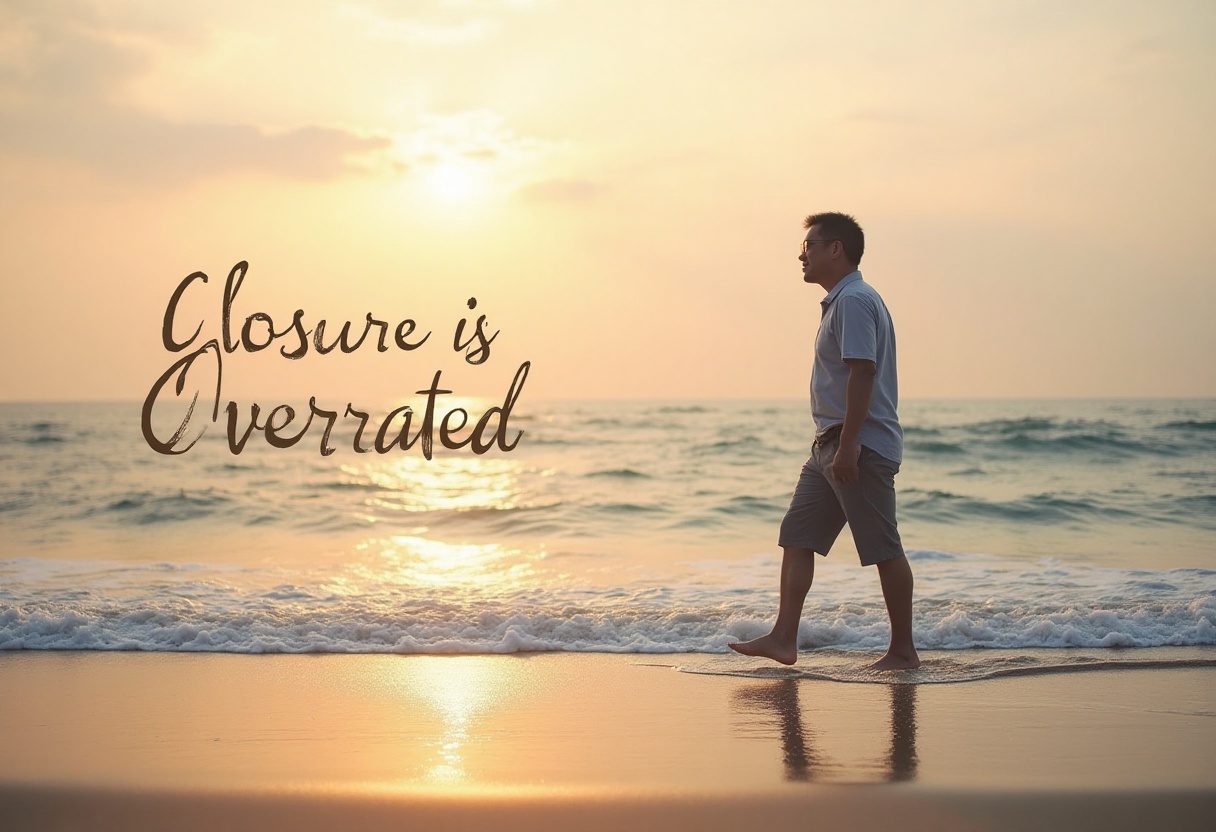Stop Waiting for Closure. Some Things Don’t Need an Explanation
- Home
- Blogs
- Stop Waiting for Closure

Let’s get straight to the point—closure is overrated.
We grow up believing that every painful ending, every unanswered question, and every
unresolved situation will magically make sense one day. That if we just get the right
conversation, the right apology, or the right explanation, we’ll finally be able to move on.
But here’s the hard truth: Some things don’t get tied up in a neat little bow. Some things
just… end.
And waiting for closure? That’s just another way of keeping yourself stuck.
What We Think Closure Will Give Us (And Why It Usually Doesn’t Work)
Closure is sold to us as “the thing that will make the pain go away.” We believe that if we
can just understand why something happened, it’ll hurt less.
But have you ever actually gotten an explanation that made you feel better? Or did it just
leave you replaying the situation even more?
Here’s why closure is a tricky concept:
The answers won’t change what happened.
Even if you get the truth, it won’t rewrite the past.
Knowing why someone hurt you doesn’t undo the hurt.
Some people don’t have the emotional maturity to give you the closure you want.
Not everyone has the ability (or willingness) to give you the truth.
Some people will never admit they were wrong. Some won’t even remember the damage
they caused.
Sometimes, closure is just an excuse to hold on.
If you’re waiting for someone to “make things right” before you can move forward, you’re
giving them power over your healing.
Closure isn’t about what they give you—it’s about what you decide to give yourself.
How to Let Go Without Closure
If you’ve been waiting for closure that isn’t coming, here’s how to stop chasing it and start healing on your own terms.
1. Accept That Some Things Won’t Make Sense
Not everything in life gets a satisfying explanation. Some people leave without a reason. Some betrayals will never come with an apology. Some endings won’t be fair. That’s not a sign that you need to keep searching for answers—it’s a sign that it’s time to let go of the need to understand. Because understanding won’t change what already happened. But acceptance will change how you move forward.
2. Rewrite the Story for Yourself
If someone ghosted you, cheated on you, or hurt you in a way you never expected, it’s easy
to get stuck in the loop of Why? Why would they do that?
Instead of chasing an answer that may never come, shift your focus:
Why do I need their explanation to move on?
What does this situation teach me about what I deserve?
What closure can I give myself right now?
Your story doesn’t need their perspective to be valid. You get to decide what meaning you take from this.
3. Stop Romanticizing “One Last Conversation”
Let’s be honest—when we say we want closure, what we really mean is that we want
another shot at changing the outcome.
We think that if we have one final conversation, they’ll finally understand how much they
hurt us.
We hope that if we get an explanation, it’ll make the pain feel logical.
We secretly wish that if we talk again, they’ll regret their actions and come back.
But that last conversation rarely gives you what you’re looking for. More often than not, it
just reopens wounds you were already healing from.
Closure doesn’t come from a conversation. It comes from deciding that you don’t need one.
4. Focus on What’s Next, Not What’s Behind
The longer you wait for someone to explain themselves, the longer you put your life on hold.
Instead of waiting for an apology that may never come, ask yourself:
What do I want my life to look like beyond this situation?
How can I take back my emotional energy?
What would moving on look like for me right now?
The best revenge isn’t an explanation. It’s living well. It’s choosing peace. It’s not letting
someone else’s actions define your future.
Closure is a Choice, Not a Gift
At the end of the day, closure isn’t something someone else gives you. It’s something you
create for yourself.
It’s not about getting answers—it’s about choosing to be done with the questions. It’s about
deciding that you are worthy of moving forward, even if you never get an explanation.
Because the truth is, you don’t need an apology to heal. You don’t need an explanation to
let go. You don’t need closure to move forward.
You just need to decide that you’re done waiting for it.
And when you do? That’s the real closure.